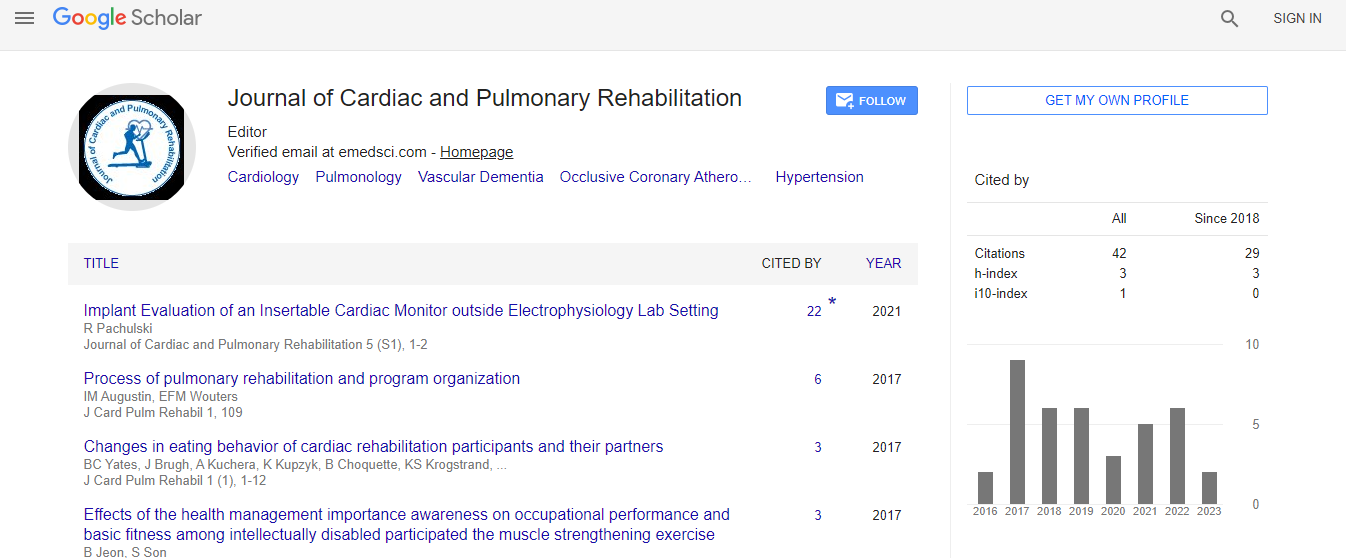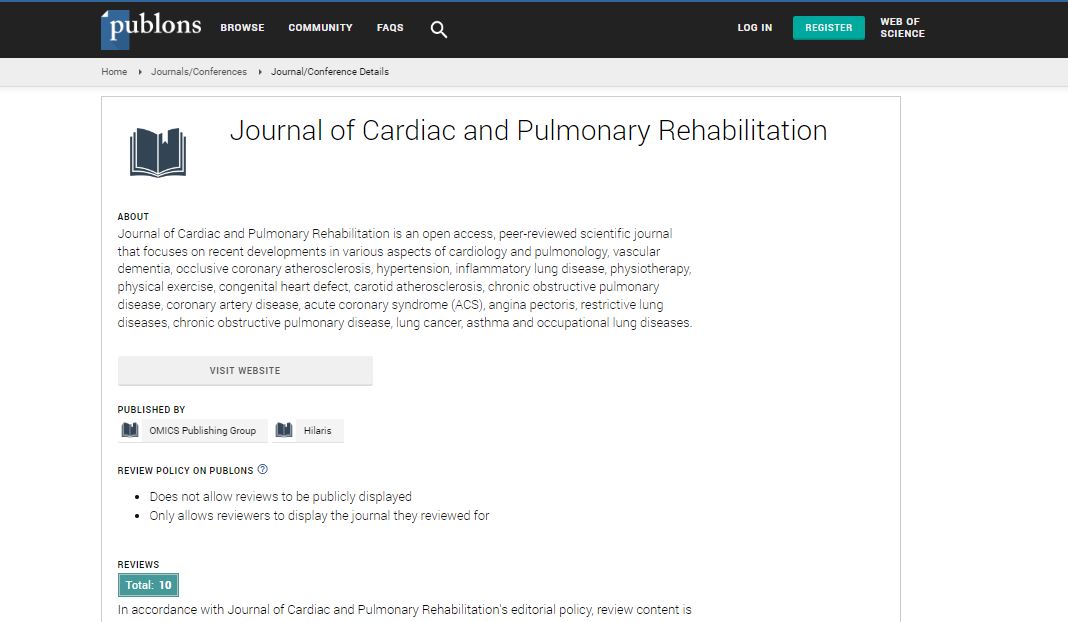Exercise Training and Rehabilitation in Idiopathic Pulmonary Fibrosis (IPF): Optimizing Functional Capacity and Quality of Life
*Corresponding Author: Lateef Adegboyega, Department of Biochemistry, Faculty of Basic Medical Sciences, College of Medicine of University of Lagos, Nigeria, Email: maildegboyega.lateef.l@gmail.comReceived Date: Nov 05, 2024 / Published Date: Nov 29, 2024
Citation: Adegboyega L (2024) Exercise Training and Rehabilitation in Idiopathic Pulmonary Fibrosis (IPF): Optimizing Functional Capacity and Quality of Life. J Card Pulm Rehabi 8: 290.
Copyright: © 2024 Adegboyega L. This is an open-access article distributed under the terms of the Creative Commons Attribution License, which permits unrestricted use, distribution, and reproduction in any medium, provided the original author and source are credited.
Abstract
Idiopathic pulmonary fibrosis (IPF) is a progressive lung disease characterized by fibrosis of the lung tissue, leading to respiratory impairment and reduced quality of life. Exercise training and rehabilitation have emerged as essential components in the management of IPF, aiming to optimize functional capacity, improve physical endurance, and enhance overall quality of life. Evidence from recent studies suggests that supervised exercise programs, including aerobic training, resistance training, and pulmonary rehabilitation, can significantly improve exercise tolerance, muscle strength, and dyspnea (breathlessness) in IPF patients. Furthermore, such interventions may reduce hospitalizations, improve psychological well-being, and help manage the progression of the disease. While the exact mechanisms by which exercise exerts these benefits remain under investigation, it is widely recognized that exercise therapy can be an integral part of multidisciplinary care for IPF patients. This paper reviews the current literature on the role of exercise training and rehabilitation in IPF management, highlighting the potential benefits, challenges, and future directions for optimizing treatment strategies.

 Spanish
Spanish  Chinese
Chinese  Russian
Russian  German
German  French
French  Japanese
Japanese  Portuguese
Portuguese  Hindi
Hindi 
